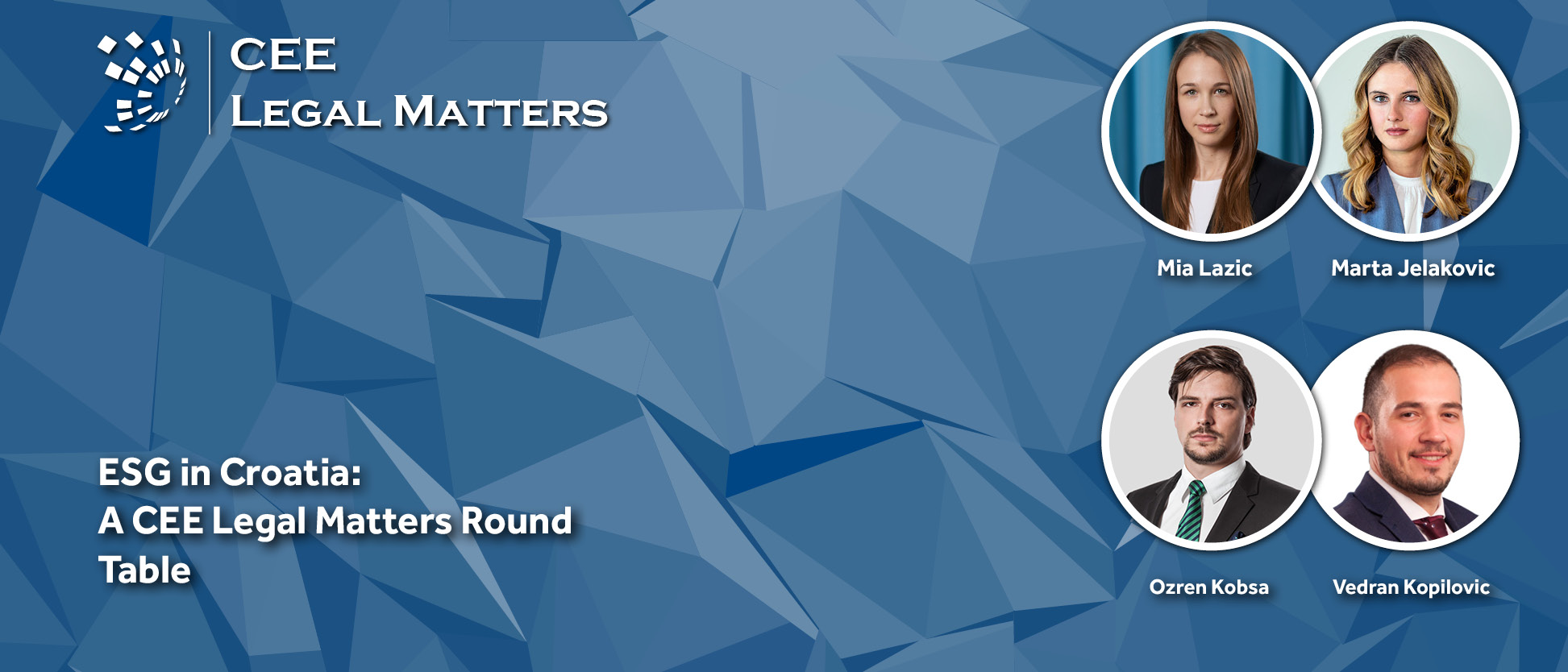The European Investment Bank (EIB) will support Hungarian green financing with long-term forint-denominated loans. The cooperation agreement, which was entered into this May and allows the EIB to provide more fixed-rate long-term loans in Hungarian forints to the local economy, aims to boost sustainable economic and social growth, the post-pandemic recovery and climate action in Hungary. It is the EIB's response to growing market demand for local currency lending in EU Member States that are not part of the euro area.
Schoenherr Advises MedAustron on EIA for Treatment Room
Schoenherr has advised Austrian cancer treatment and research center MedAustron on the environmental impact assessment for the commissioning of a fourth treatment room.
Schoenherr and E+H Advise on Storyblok's USD 47 Million Series B
Schoenherr has advised Austrian scale-up Storyblok on its USD 47 million Series B financing round led by Mubadala Capital and HV Capital, with 3VC and Firstminute Capital also participating. E+H advised HV Capital on its investment.
Schoenherr Advises HS Timber on Luvian Saha Acquisition
Schoenherr, working with Hannes Snellmann, has advised HS Timber Group on the acquisition of Luvian Saha. Castren & Snellman reportedly advised the seller.
Hot Practice in the Czech Republic: Vladimir Cizek on Schoenherr’s Corporate/M&A Practice
Schoenherr’s busiest practice, according to Partner Vladimir Cizek, has been Corporate/M&A, with a lot of activity involving banking and financial services, technology targets, and healthcare and life sciences in the last 12-plus months. Cizek explains that technological advancement, the COVID-19 pandemic, and the increasing demand for businesses to grow have contributed to increased activities in these sectors.
Schoenherr Advises HS Timber and Blue Minds on Sale of Interfloat to Borosil Renewables
Schoenherr has advised the HS Timber Group and Blue Minds on their sale of the Interfloat Corporation and Glasmanufaktur Brandenburg to Borosil Renewables.
Recent Legal Developments in the Liquidation of Sberbank Hungary
The Hungarian Government issued a decree that amends certain provisions of the bank's liquidation proceedings. The decree entered into force on 15 April, and it affects the solvent liquidation of Sberbank Hungary, subsidiary of Sberbank Europe AG, Hungarian member of the Russian Sberbank group.
The Corner Office: Favorite Professor
In “The Corner Office” we ask Managing Partners at law firms across Central and Eastern Europe about their backgrounds, strategies, and responsibilities. The question this time: Who was your favorite professor in university and why?
Paradigm Shift in Austrian Crypto Taxation
The pioneering Austrian legislator is breaking new ground in the area of crypto taxation. Income from cryptocurrencies will no longer be taxed progressively, at up to 55% for individuals, but at a flat rate of 27.5% withholding tax. With these rules, the Austrian legislator has brought clarity to the taxation of crypto assets for the first time and has responded to the increased practical relevance of cryptocurrencies and the need to tax them in line with securities. The previous taxation of crypto assets was mainly based on non-binding information from the homepage of the Austrian Ministry of Finance.
In Search of a New Energy Normal (Part 1)
In the past twelve months, energy prices seem to have taken a life of their own. Their continued and, at times, shocking growth has raised concerns across the region and prompted differing responses and policy changes in each country. To get a more accurate picture of recent developments, we reached out to experts in Bulgaria, the Czech Republic, Moldova, Montenegro, Poland, and Turkey and asked them about the current energy prices, their impact on local economies, the drivers behind their growth, and whether any plans were in place to address the issue.
Schoenherr and Tzvetkova & Partners Advise on NTT Data Business Solutions' Acquisition of Business Services and Technologies
Schoenherr and Stuttgart-based Oppenlaender Rechtsanwaelte have advised NTT Data Business Solutions on its acquisition of Business Services and Technologies. Tzvetkova & Partners advised the shareholders of Business Services and Technologies.
Schoenherr Advises Bulstrad Life on Brokerage, Outsourcing, and Reinsurance Agreements
Schoenherr has advised Bulstrad Life Vienna Insurance Group on its brokerage and outsourcing agreements with the Global Benefits Group and the related reinsurance agreement with AXA France Vie.
Schoenherr and EY Law Advise on Grosso Tec's Partial Takeover of S&T
Schoenherr, working with Hogan Lovells in Germany, has advised S&T on a voluntary partial public takeover offer by Grosso Tec. EY Law advised Grosso Tec.
The Buzz in Austria: Interview with Martin Ebner of Schoenherr
With the effects of the war in Ukraine remaining difficult to predict, there is ample work generated by the sanctions alone, according to Schoenherr Partner Martin Ebner.
UTP Directive Implemented in Romania: New Rules to Be Applied by Retailers and Suppliers
After a rather lengthy legislative process, Directive (EU) 2019/633 (the "UTP Directive") was implemented in Romania on 12 April 2022 by Law No. 81/2022 on unfair trade practices (UTPs) between companies within the agricultural and food supply chain (the "UTP Law"). It sets out a new set of rules applicable to food retailers and suppliers that have an annual turnover of around EUR 2m.
Romania Launches New Renewables Support Scheme for Wind and Solar Projects
On 31 March 2022, the Romanian Ministry of Energy launched a call for projects under a new state aid scheme for supporting the development of new wind and solar power plants, with or without integrated power storage capacities (the "Support Scheme").
EU: Advertorials May Increasingly Become the Target of Unfair Competition Claims
In a preliminary ruling following a request by the German Federal Court of Justice (case C-371/20), the Court of Justice of the European Union (CJEU) interpreted Point 11 of Annex I to the Unfair Commercial Practices Directive (Directive 2005/29/EC; UCP-Directive). This provision aims at preventing the use of editorial content in the media to promote a product where a business has paid for the promotion without making this clear in the content or through images or sounds clearly identifiable by the consumer (advertorial).
ESG in Croatia: A CEE Legal Matters Round Table
On February 24, four leading lawyers in Croatia sat down for a virtual round table moderated by CEE Legal Matters Managing Editor Radu Cotarcea. The conversation focused on the current state of affairs of ESG in the country at the moment and the challenges of raising awareness in the topic.


















